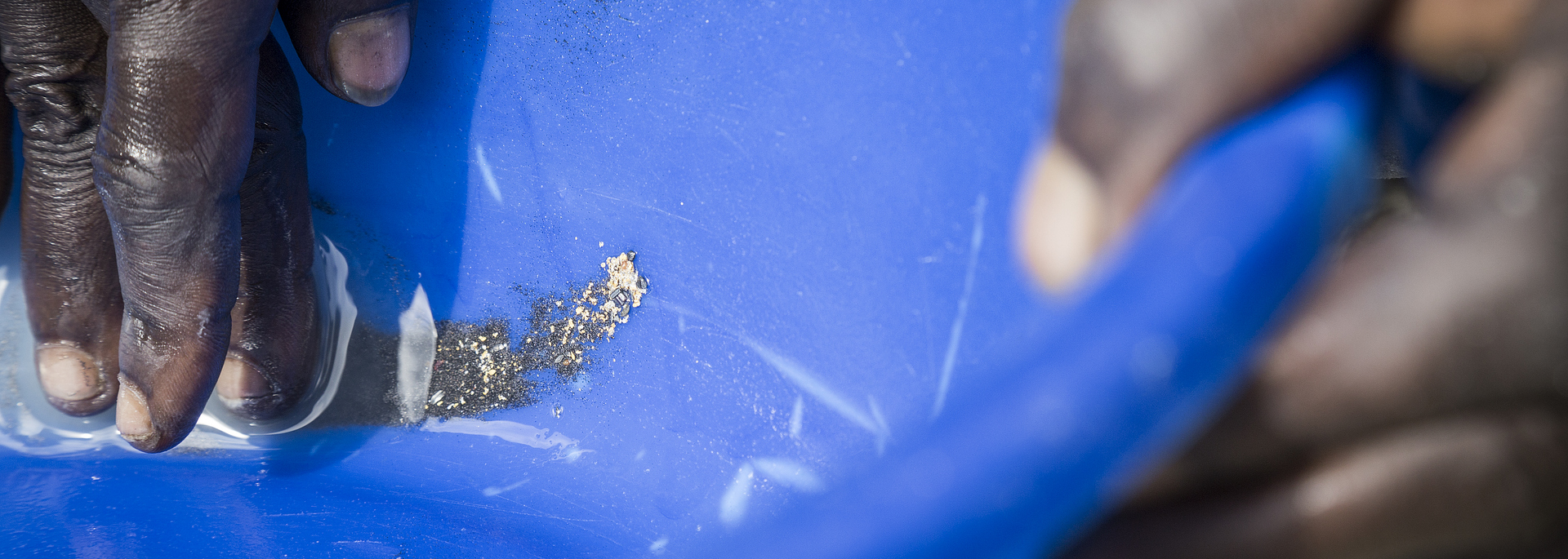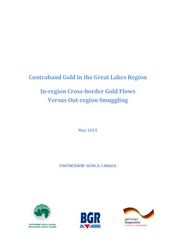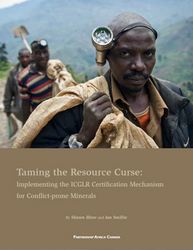
IMPACT in Burundi
Our work in Burundi focuses on providing technical guidance to develop new approaches to natural resource management.
Sustainable peace for Burundi continues to be threatened by political crisis, ongoing human rights violations, systemic corruption, and mismanagement of natural resources. Burundi’s 11.2 million people are living in poverty—not only facing a lack of income, but also poor education, health, and living standards. Food insecurity is widespread and there is limited access to water, sanitation, and electricity.
Deforestation has also posed a significant problem, as conflict leaves previously protected lands vulnerable to illegal logging, poaching of wildlife, and clearing for agriculture.
Though the discovery of potential gold deposits throughout the last two decades presents an opportunity for national economic development, Burundi’s mineral exports have been implicated in the cross-border illicit trade of minerals originating from Democratic Republic of Congo. Political instability brings significant challenges for the mining sector, including disrupting production and exports. As many as 160,000 Burundians rely on artisanal mining as their main source of income.
The country has committed to transform its natural resource management systems. Burundi is a member of the International Conference on the Great Lakes Region (ICGLR) and in 2010, the country’s President signed the Lusaka Declaration with 11 other Heads of State approving the Regional Initiative against the Illegal Exploitation of Natural Resources (RINR). Burundi’s capital, Bujumbura, is home to the Executive Secretariat of the ICGLR.
Resources
Burundi’s key natural resources include copper, uranium, nickel, tin, peat, platinum, tantalum, and cobalt, as well as small amounts of gold, tin,

We Reveal
Our research in the Great Lakes region investigates the drivers of the illicit trade of conflict-prone minerals and highlights recommendations for ICGLR Member States, including Burundi. We examine issues such as formalization of the artisanal mining sector, fiscal reform, harmonization of legislation, and strengthening of internal controls to end smuggling. We also provided analysis of certification, traceability, and due diligence as it applies to conflict-prone minerals in the Great Lakes region. In 2011, we published Taming the Resource Curse: Implementing the ICGLR Certification Mechanism for Conflict-prone Minerals that outlined a certification mechanism for 3TG based on best practices. The mechanism was approved by all the Heads of State of the ICGLR, including Burundi’s President, in December 2010.

We Innovate
As part of our work to transform mineral supply chains, we’ve led efforts to support traceability and due diligence, while promoting benefits for Burundi’s miners and their communities. As a technical partner to the ICGLR, we are supporting the implementation of the Regional Initiative against the Illegal Exploitation of Natural Resources. We provide technical guidance to the ICGLR Secretariat, and have supported Burundi’s Ministry of Energy and Mines on implementing the six tools which include the Regional Certification Mechanism, the Regional Database on Mineral Flows, and formalizing the artisanal mining sector. We have provided capacity building and sensitization to policymakers from Burundi, as well as members of its industry, and civil society on their role in traceability and due diligence. Through our collaboration with the Great Lakes Region Civil Society Coalition against the Illegal Exploitation of Natural Resources (COSOC-GL), we provide training to our civil society partners in Burundi for ongoing independent monitoring of traceability and due diligence implementation. As well, we support and spotlight their capacity for producing technical and independent assessments of supply chain integrity.

We Engage
Due to the political crisis and violence in Burundi, we have suspended dialogue with Burundian policymakers and the country’s private sector. Through our partnership with COSOC-GL, we continue to support to civil society from Burundi and the Great Lakes region to bring the voices and concerns of artisanal miners to industry and governments. Together, we engage governments to strengthen their internal controls, and encourage the private sector to put in place traceability and due diligence for their mineral supply chains.
Recent Highlights
ICGLR Regional Certification Mechanism Implementation
IMPACT supports the implementation of the International Conference on the Great Lakes Region (ICGLR) Regional Certification Mechanism and Organisation for Economic Co-operation and Development’s (OECD) Due Diligence Guidance. We provide technical support and training so that ICGLR Member States can effectively meet international and regional standards and ensure their minerals are conflict-free.
ICGLR Regional Database on Mineral Flows
IMPACT is supporting the International Conference on the Great Lakes Region (ICGLR) to operationalize the Regional Database on Mineral Flows as part of its efforts to end the illicit trade of conflict-prone minerals.

Contraband Gold in the Great Lakes Region: In-region Cross-border Gold Flows Versus Out-region Smuggling
May 2015
This report analyzes the artisanal gold flows within and out of the Great Lakes Region with the perspective of promoting responsible supply chain management in the context of the ICGLR Regional Initiative on Natural Resources and the OECD Due Diligence Guidance.
